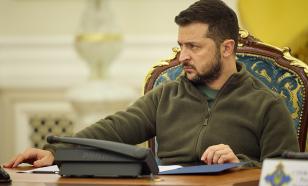Cheap Television Sets To Inundate Russian Market
Russian major television producer acquired a television tube manufacturing factory in Great Britain

The company Rolsen, one of the largest Russian producers of TV sets, acquired a television tube manufacturing plant in Great Britain. If Rolsen manages to use this purchase well, it might result in a considerable reduction of prices on TV sets in Russia. 
RBC Daily news agency reported, the Russian company purchased the television tube factory in the British town of Newport. The enterprise was previously owned by Philips, which decided to get rid of it on account of the low profitability. Spokesmen for Rolsen told RBC Daily that the equipment of the British factory would be dismantled and carried over to Russia. This will allow to reduce the cost of the television production considerably. Rolsen's managers said that it would help the company take advantage of competitors that reduce the price on their production with the help of illicit customs and fiscal methods.
"This summer will become the last summer for a lot of Russian producers of television sets," an owner of a Russian domestic appliances company said. The Russian market of TV sets is approaching a certain saturation point, which might eventually lead to a massive price slide and fundamental redistribution of market shares. "In the beginning of the year 2000, the Russian customs started toughening the supervision, and a lot of foreign producers were forced to turn various illicit methods down, although they previously allowed businessmen not to pay customs duties and certain taxes. Prices started growing on the home market, and the production of television sets in Russia became profitable. "Dozens of new producers have appeared in Russia over several recent years," Rolsen's Director Leonid Osipov said. The list includes such companies as Sokol, Erisson, Rolsen, Polar. On the other hand, the production of foreign television brands was launched in Russia too, like Funai or Akai, for example. The market turned out to be oversaturated, and several producers started trading at a loss to keep their market shares.
The reduction of costs became the key aspect for all companies in this respect. Leonid Osipov said, Rolsen had acquired the British factory for that very reason: "This business is totally not lucrative in Britain - local producers can not compete with Asian ones because of the high labor force cost. We will carry the equipment of the British factory over to Russia, and it will let us reduce our costs. A completely customs-cleared import television tube costs about $60 in Russia (there is no television tube production in Russia at present). When we start assembling television tubes in Russia, their prime cost will drop by 19 percent. We have already calculated that the production will be profitable if we produce two million tubes a year," Leonid Osipov said.
However, market members doubt about Rolsen's idea. "The market of television tubes is dead. It is possible to gain some profit from 29" tubes, but their Newport-based plant does not produce such tubes. In addition to it, I do not understand how Rolsen is going to make this business profitable. As far as I know, Rolsen produced 700,000 TV sets last year. I do not understand, what they are going to do with those tubes at all. In my opinion, it will be very hard for them to return the investment, because such a plant costs $250 million, which is an unreal sum for Rolsen," an expert said.
Vitautas Ulozas, an expert of the Lithuanian company Ekranas, sticks to the same position (this company is the only television tube producer on the territory of the former USSR). "It is hard for me to evaluate the plant in Newport. The production capacity of one million tubes costs $100 million (RBC Daily says that the capacity of Newport-based plant is equal to three million tubes). All European plants are unprofitable, except for ours - the market is declining. Only large companies like Samsung or Thomson can afford suffering losses on this market."
However, Rolsen's managers still think that their purchase in Great Britain was economically profitable. Leonid Osipov said that Rolsen's production output made up 240,000 TV sets last year (Rolsen's own TV sets) and LG's television sets assembled at Rolsen - 750,000. This year, Rolsen plans to achieve the level of 1.4 million television sets, because only 600,000 "British" television tubes remain unclaimed (they can be sold to Russian companies). In addition to it, Leonid Osipov added, that the company had purchased the British plant at a very low price.
If Rolsen's transaction turns out to be successful indeed, this will most likely lead to further reduction of prices on television sets. It goes without saying that other producers will not be willing to let their market shares go. It is not excluded that they might use the so-called administrative resource to ameliorate their competitive ability. According to unofficial statements from Russian television producers, the Russian customs has loosened the border control again. Large importers may start using illicit methods in their businesses again. A spokesman for a Russian television-producing factory said that one had to pay the customs duty of $55-65 per each television set. However, there is also a so-called local price: a businessman comes to consent with a customs officer and clears the goods. The local price is reducing at present, although it was high before on account of the tough control. That price was $320 six months ago, and now it reaches $250.
Subscribe to Pravda.Ru Telegram channel, Facebook, RSS!
